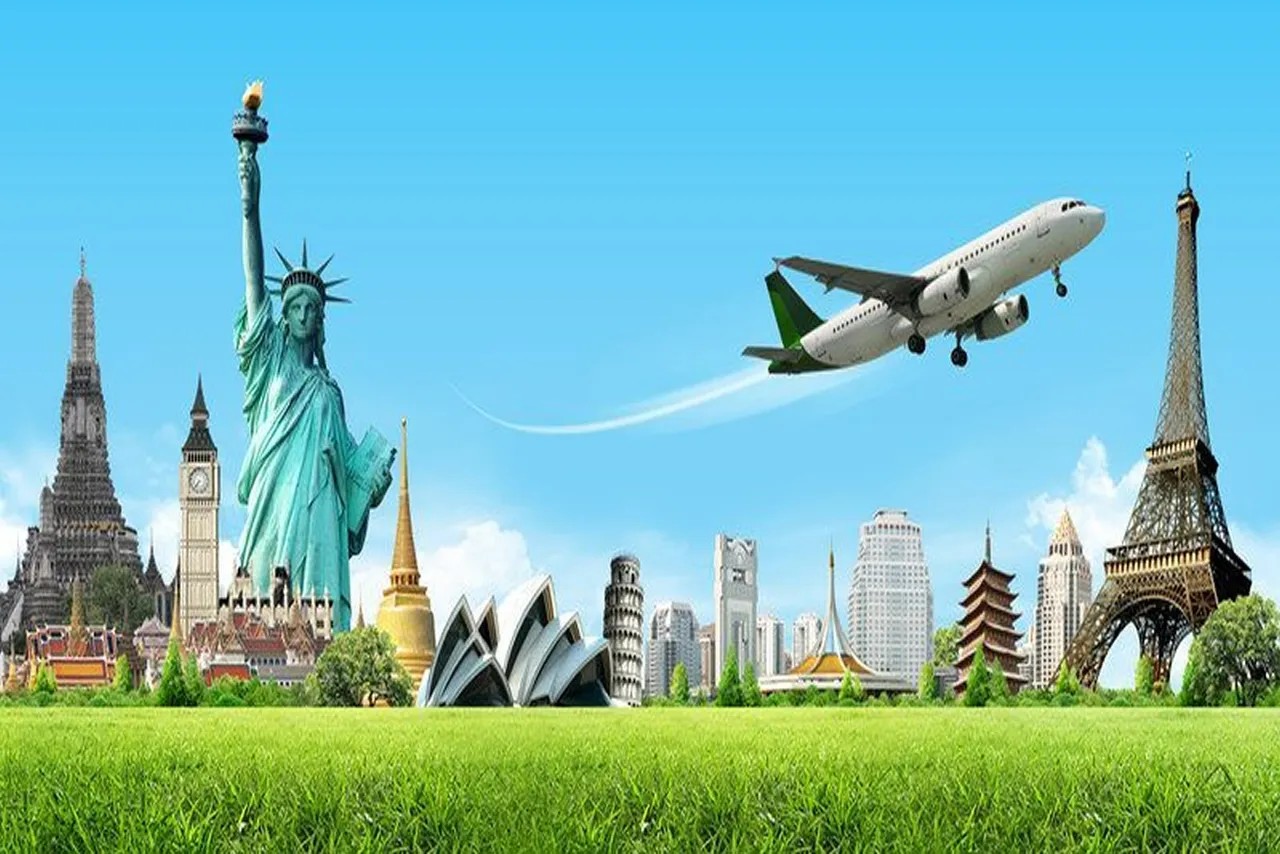
Travel refers to the act of moving or journeying from one place to another, typically over a significant distance and for a certain period of time. Travel can be for various purposes, such as:
- Leisure or pleasure: This includes activities such as sightseeing, relaxation, adventure, cultural exploration, and experiencing new places and cultures.
- Business: This includes attending meetings, conferences, trade shows, or other work-related events.
- Education: This includes studying abroad, attending language schools, or participating in exchange programs.
- Health and wellness: This includes medical tourism, spa and wellness retreats, or participating in fitness or yoga programs.
- Volunteering or social impact: This includes volunteering for charitable organizations, participating in community service projects, or engaging in social or environmental activism.
Travel can take many forms, such as:
- Solo travel: Traveling alone without a companion or group.
- Group travel: Traveling with a group of people, such as a tour group, family, or friends.
- Backpacking: Traveling with a backpack, often for an extended period of time and on a budget.
- Luxury travel: Traveling in style, often staying in upscale hotels, resorts, or using high-end transportation.
- Digital nomadism: Working remotely while traveling, often in exotic or unconventional locations.
Travel can have many benefits, such as broadening one's perspective, gaining new experiences, building cultural awareness, and enhancing personal growth and development. However, it can also have challenges, such as language barriers, cultural differences, homesickness, and logistical issues.
The key points about travel are:
- Travel involves movement between distant geographical locations, which can be done by various means such as walking, driving, flying, or taking public transportation.
- The reasons for travel include pleasure, relaxation, discovery, adventure, intercultural communication, and avoiding stress. People may travel for business, tourism, research, visiting friends/family, or religious pilgrimages.
- Travel has evolved over history, becoming easier and more accessible with technological advancements. In the past, travel was slower, more dangerous, and more dominated by trade and migration.
- The meaning and purpose of travel is highly personal and can vary greatly from person to person. For some, it represents freedom, escape, or self-discovery, while for others it may be about checking off destinations or getting drunk.
History
The history of travel can be traced back to ancient times, when humans began to explore and discover new lands and cultures. Here are some key milestones in the history of travel:
- Ancient civilizations: The earliest evidence of travel dates back to ancient civilizations, such as the Egyptians, Greeks, and Romans, who traveled for trade, diplomacy, and warfare.
- Religious pilgrimages: Travel for religious purposes has been a significant part of human history, with early examples including the Hajj pilgrimage to Mecca and the Camino de Santiago in Spain.
- Grand Tour: In the 17th and 18th centuries, the Grand Tour became popular among European aristocrats, who traveled to Italy, France, and other European countries to learn about art, culture, and history.
- Industrial Revolution: The Industrial Revolution in the 19th century brought about significant changes in transportation, such as the steamship, railway, and automobile, making travel faster, cheaper, and more accessible.
- Mass tourism: The 20th century saw the rise of mass tourism, with the advent of commercial air travel and the growth of the travel industry. The post-World War II era saw the emergence of package tours, all-inclusive resorts, and budget airlines.
- Digital age: The digital age has revolutionized the travel industry, with the rise of online travel agencies, social media, and mobile technology. Today, travelers can easily plan and book their trips online, access travel information and reviews, and stay connected with family and friends while on the go.
Throughout history, travel has played a significant role in shaping human culture, society, and economy. It has facilitated the exchange of ideas, goods, and services, and has contributed to the growth and development of civilizations. Today, travel remains a popular and essential activity for millions of people around the world, providing opportunities for leisure, business, education, and personal growth.
Modes of Travel
There are several modes of travel, each with its own advantages and disadvantages. Here are some of the most common modes of travel:
- Air travel: airplanes are the fastest and most convenient way to travel long distances, but they can be expensive and subject to delays or cancellations.
- Car travel: Driving a car is a popular mode of travel for short to medium distances, offering flexibility and convenience, but it can be subject to traffic congestion and high fuel costs.
- Train travel: trains are a comfortable and scenic way to travel, offering spacious seating, Wi-Fi, and dining options, but they can be slower and more expensive than other modes of travel.
- Bus travel: buses are an affordable and convenient way to travel, offering Wi-Fi, power outlets, and restrooms, but they can be subject to traffic congestion and longer travel times.
- Cruise travel: Cruises are a popular way to travel to multiple destinations while enjoying amenities such as dining, entertainment, and recreational activities, but they can be expensive and subject to sea sickness.
- Motorcycle or bicycle travel: These modes of travel offer a unique and adventurous way to explore new places, but they can be physically demanding and subject to weather conditions.
- Walking or hiking: These are active and environmentally friendly ways to travel, offering the opportunity to explore new places at a slower pace, but they can be physically demanding and time-consuming.
Each mode of travel has its own unique advantages and disadvantages, and the choice of mode often depends on factors such as distance, budget, time, and personal preference. Regardless of the mode of travel, it is important to plan ahead, be prepared, and stay safe while on the road.